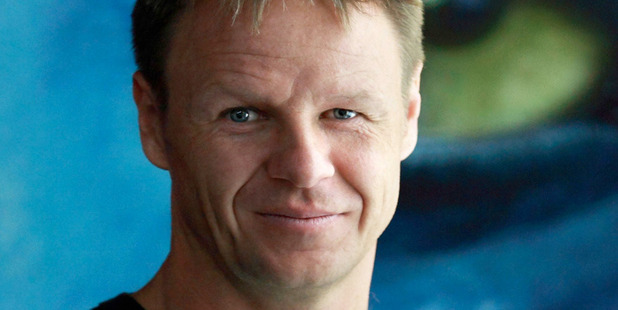Mark Sagar
The Oscar-winning Auckland University professor behind the world-renowned Baby X intelligent, emotionally responsive avatar, has launched a spin-out company, Soul Machines, after attracting US$7.5 million in a series A financing round led by Horizon Ventures with Iconiq Capital.

Mark Sagar
Soul Machines is developing human-like avatars that enrich the user experience for customers and markets adopting artificial intelligence-based platforms. It’s building on the technology behind Baby X, the first avatar developed over the past five years by Sagar and his engineering research team at the Laboratory for Animate Technologies based in the University of Auckland’s Bioengineering Institute.
The former medical researcher started his career building computer simulations of the human eye for virtual surgery and his pioneering work in computer-generated faces for the digital characters in blockbusters such as Avatar and Kong Kong won him two consecutive Oscars.
Horizon Ventures is a venture capital firm that manages the private investment of Hong Kong business magnate Li Ka-shing and has funded some of the more well-known technology innovations of the last decade including Facebook, Skype, DeepMind, Siri, Spotify and more. Iconiq Capital manages investments for some of Silicon Valley’s brightest billionaires including Facebook founder Mark Zuckerberg. Other strategic investors in the round have been kept confidential.
Horizon Ventures was introduced to the technology during a recent visit to the university and made the decision to invest almost immediately.
Sagar has retained a 37.63 percent of the new company, while the venture capital investors hold around 35 percent, and Auckland Uniservices, the university’s commercial arm, has 17.15 percent. It’s the largest deal the university has done for such an early stage company, valuing it at $21.4m.
Horizon Ventures’ Phil Chen, who’s executive chairman of Soul Machines, has a proven track record in early investments in disruptive AI technology and will help drive mass adoption of the avatars across various markets. He said the work on Baby X is leading the way in development of a completely new user interface between humans and their machines.
“With the rapid acceleration of AI technology and deep learning applications, Mark and his team have the opportunity to build a very valuable platform,” he said.
Sagar said Horizon are connected at high levels in Silicon Valley and beyond. “They can open a lot of doors for us and already have.”
He said Soul Machines wants to become the interface of choice when interacting with technology, connecting the human and technology worlds.
“That interface point is about humanisation – making computers more relatable so they can express themselves and they can also detect that in people,” he said. “It’s a bit like a science fiction scenario, you’re talking to your intelligent machine and it’s just like talking to a person.”
People learn through interaction with each other but that’s completely ignored by current artificial intelligence, Sagar said.
Tech entrepreneur Greg Cross, formerly with PowerbyProxi, has also joined the company to help with commercialisation. He said the first avatars from the platform are likely to be developed as virtual call centre agents, served from the cloud into client’s web browsers to interact with customers in a more cost-effective and user friendly way.
One example would be providing an avatar as a human face to IBM’s Watson, the supercomputer that combines artificial intelligence and analytical software as a question answering machine. The avatars can grow and expand their knowledge about each customer based on the questions they ask and the nature of the responses given. They can also be customised to look like any character or real or fictional person and with a personality that embodies each client’s brand.
Future consumer applications could include developing avatars for virtual reality games and augmented reality, similar to the current tv series Westworld where the robots have characters and personality and adaptability to what happens around them, Sagar said. Another use could be virtual assistants with expertise in specific areas.
Soul Machines already has 26 staff including engineers, artists and researchers and the new funding will allow it to hire rapidly with developments, soon to be announced, with several large offshore corporates already well down the track.
UniServices chief executive Andy Shenk said the technology had been under development for quite a long time because it was very hard to do.
“It’s a unique combination of really deep understanding of neuroscience and the art of animation and computer science,” he said. “The telepresence could be used for medical applications and all sorts of stuff and maybe one day as members of families.”
